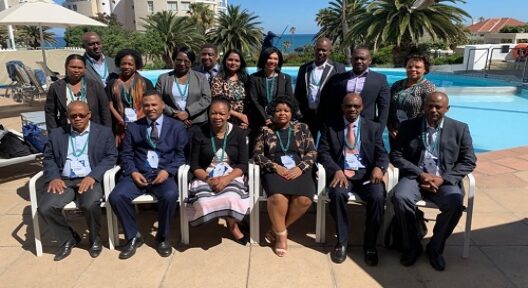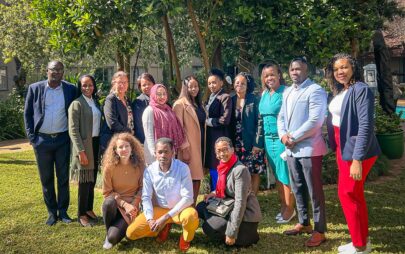PharmTrain – Corona Global
Drug Regulation in Health Crises: Development of a Framework for the Regional Implementation of a Risk-based Procedure for the Evaluation of Unapproved Drugs (WHO-EUL) for Southern Africa

Short Description
The current COVID-19 pandemic highlighted the importance of efficient and robust drug regulatory authorities to ensure healthy lives and well-being for all. Well-functioning regulatory systems ensure the quality, safety and efficacy of medicines and contribute to timely access to essential medical products. Resilient regulatory systems with well-functioning structures, regulatory capacity and resources as well as harmonized standards and procedures in place are crucial for strengthening preparedness in times of crises such as epidemics or pandemics. In turn, the absence of clearly established definitions of roles and responsibilities and defined procedures in regulatory systems pose a risk on the population’s supply with safe and effective medicines in a public health emergency (PHE). A lack of harmonized structures for collaborative activities and inadequate reliance mechanisms among medicines regulatory authorities negatively impacts the timely availability of medicines in emergencies. Especially resource-constrained countries face a considerable burden due to often fragile systems with weak structures.
The project “PharmTrain-CoronaGlobal” aims to strengthen the national medicines regulatory authorities in building structures and capacity in Southern Africa. The focus of the project lies on the establishment of a framework which facilitates harmonized procedures and standards for an accelerated assessment of drug candidates in PHEs. For this purpose, the “PharmTrain-CoronaGlobal” team is collaborating with the national medicines regulatory authorities of the “Southern African Development Community” (SADC) comprising 16 countries in the southern African region. With a population of about 300 million, it is the biggest economical region on the African continent. Moreover, it is considered to be the most peaceful and stable region in Africa. The project consists of two parts. The first part includes the analysis of the current situation of the 16 countries in the SADC-region regarding existing structures and procedures for approving medicines in case of emergencies. Afterwards, a framework based on the “WHO-Emergency Use Listing” (WHO-EUL)-procedure with harmonized structures will be developed. For the second part, the partner institutions will implement the framework at regional and national level assisted by the GHPP-PharmTrain CG-project team. The project activities are going to take place in form of regular online meetings, a series of virtual workshops and face-to-face meetings if the pandemic situation allows.
Project Objectives
The overall objective of the project is to support the national medicines regulatory authorities of the project countries in strengthening their preparedness for health emergencies. In the event of regional or global crises, the establishment of standardized procedures within the national medicines authorities of SADC aims to accelerate the assessment of promising drug candidates. Additionally, the regional harmonization of standards and procedures in the 16 African countries reduces the workload of the already understaffed regulatory authorities due to work sharing activities. As a result, the efficiency and effectiveness of regulatory systems in SADC ultimately begin to improve. For this purpose, a framework based on the WHO-EUL procedure is established together with the partner institutions which is later implemented at national level.
In Cooperation with
- Southern African Development Community (SADC)
- African Union Development Agency (AUDA-NEPAD)
- World Health Organization (WHO)
- National Medicines Regulatory Authorities of SADC region
Last update: November 2022
Facts
20221031_SADC-EUA-Framework_final
(PDF, 2 MB)

